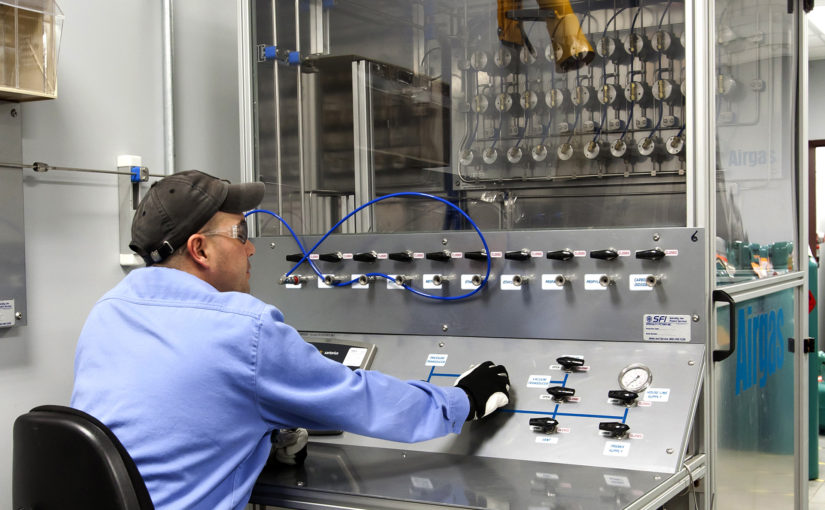Consistency, consistency, consistency. Today, most industrial processes that are performed are repetitive with a strong need for consistency. These applications demand high quality gas with higher levels of purity and accuracy, also known as specialty gas. Specialty gases must meet or exceed a particular set of analytical specifications to reach certain levels of accuracy and quality standards.
The purpose of these gases is:
- To quantify anything that would influence the process and create inconsistencies.
- To help to quickly identify the cause of inconsistencies or fluctuations in your measurements.
It is these inconsistencies that could lead to potential downtime, costing you valuable time and money.
What are specialty gases?
Specialty gases can be custom or off-the-shelf. More often than not, specialty gases are custom one-off mixtures developed for a specific customer’s application and require a lot more work to create than packaged industrial gases.
Not all specialty gases are created equal
Having inconsistent or inaccurate gas concentrations and purity levels will lead to inconsistent analytical results. Gas grades, purity and even grade names vary among specialty gas manufacturers. So how do you know you are getting the right gas for your operation?
- Work with your gas supplier to help determine the appropriate grade and concentration for your application.
- To accurately compare gases, you must review each vendor’s specifications; otherwise it’s like comparing apples to oranges.
Maximum efficiency
Using specialty gases in your application? Here are some tips to maximize your usage:
- Make sure your gas delivery system is clean, so the specialty gas remains stable and is not contaminated when it arrives at the point of use. Ineffective systems add inconsistencies or impurities. Why put clean gas through a dirty system?
- To avoid shortages, make sure to plan ahead. These gases require special attention when packaging and shipping. Schedule regular deliveries when possible.
- Be careful with valves and connections. Not just any cylinder and valve can be used for packaging. Extreme care must be taken when transferring these gases to cylinders and the material of the cylinders plays a role as well. CGA (Compressed Gas Association) has issued comprehensive guidelines designed to help you safely select your connection valves based on the gas you are using and cylinder materials. Your valves and cylinder connections are the barrier that keep your gas pure and unwanted contaminants out.
Don’t let costs dictate your decision
When determining which specialty gases would be the best choice for your operation, it is important to understand the true cost. Often, specialty gases cost more up front, but remember that it is more than just the cost per cylinder. You must look at the total value to your processes. Sometimes paying a little more up front for the right gas could considerably lower your total operating costs in the long run.
